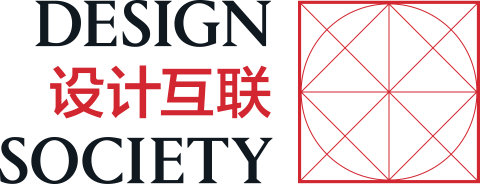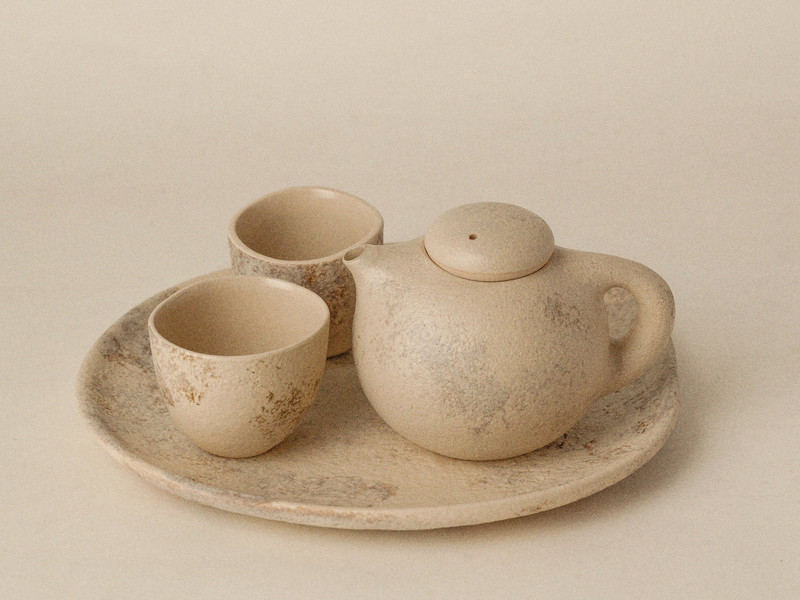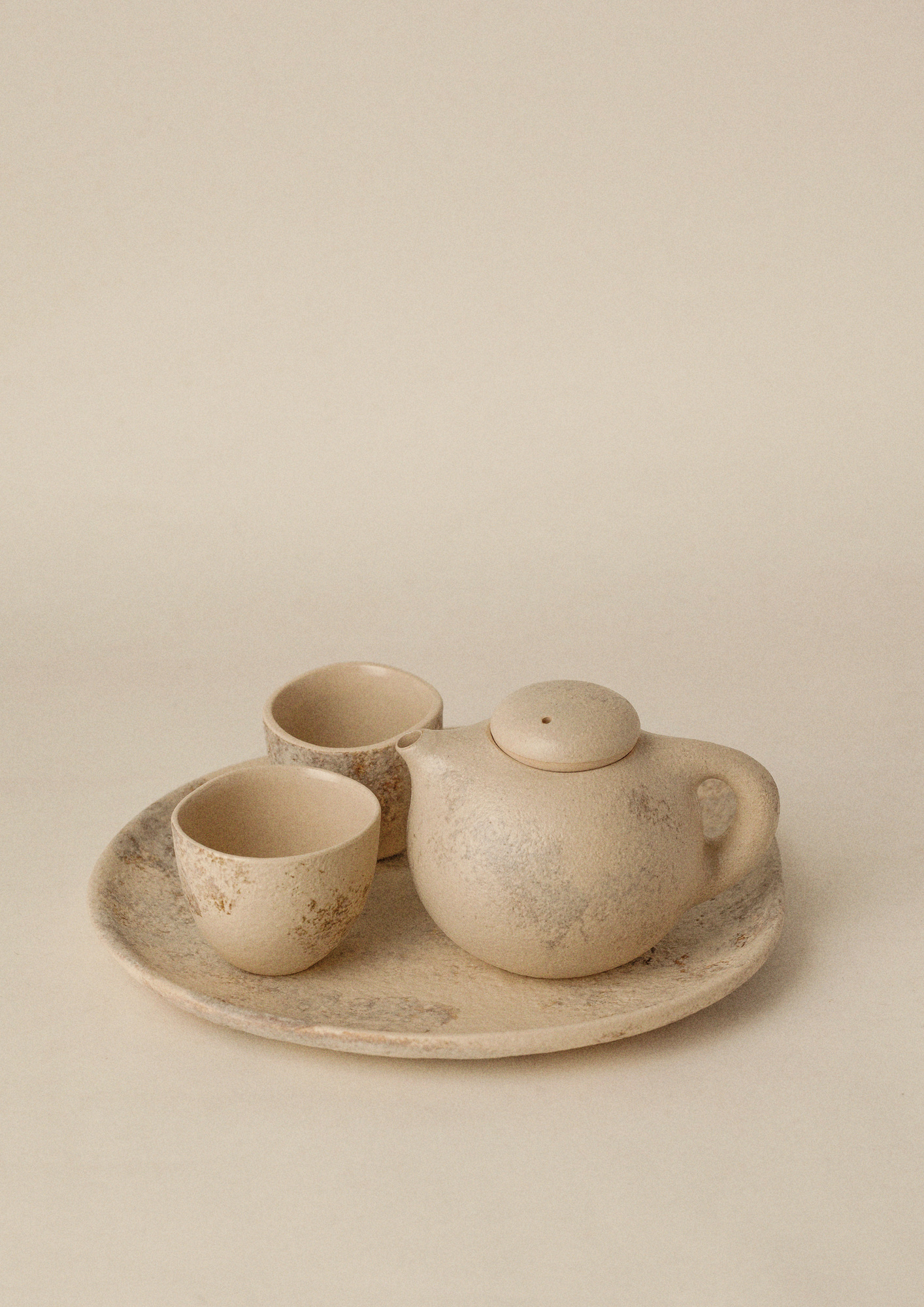
Tea Set
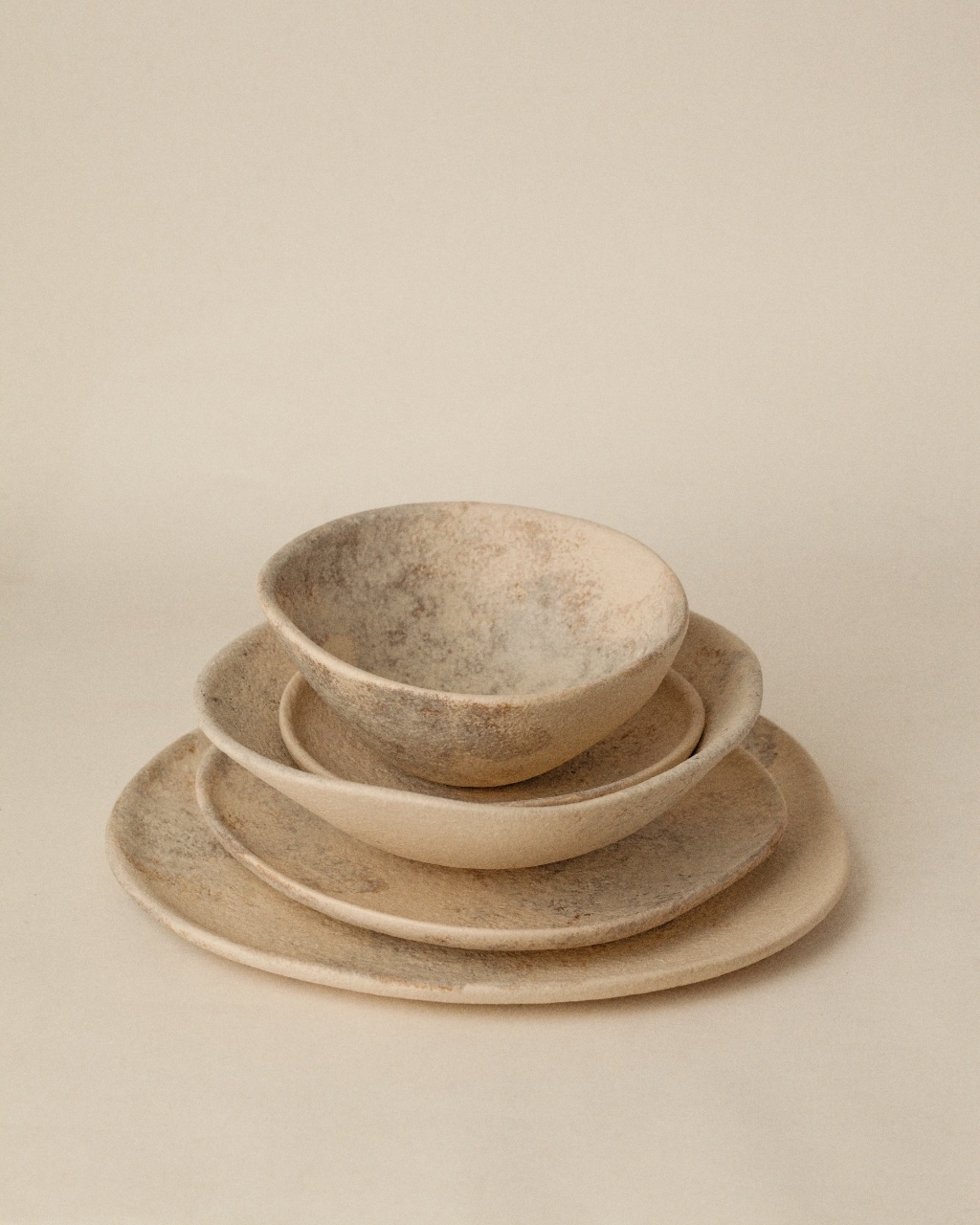
Bowls, plates and plates
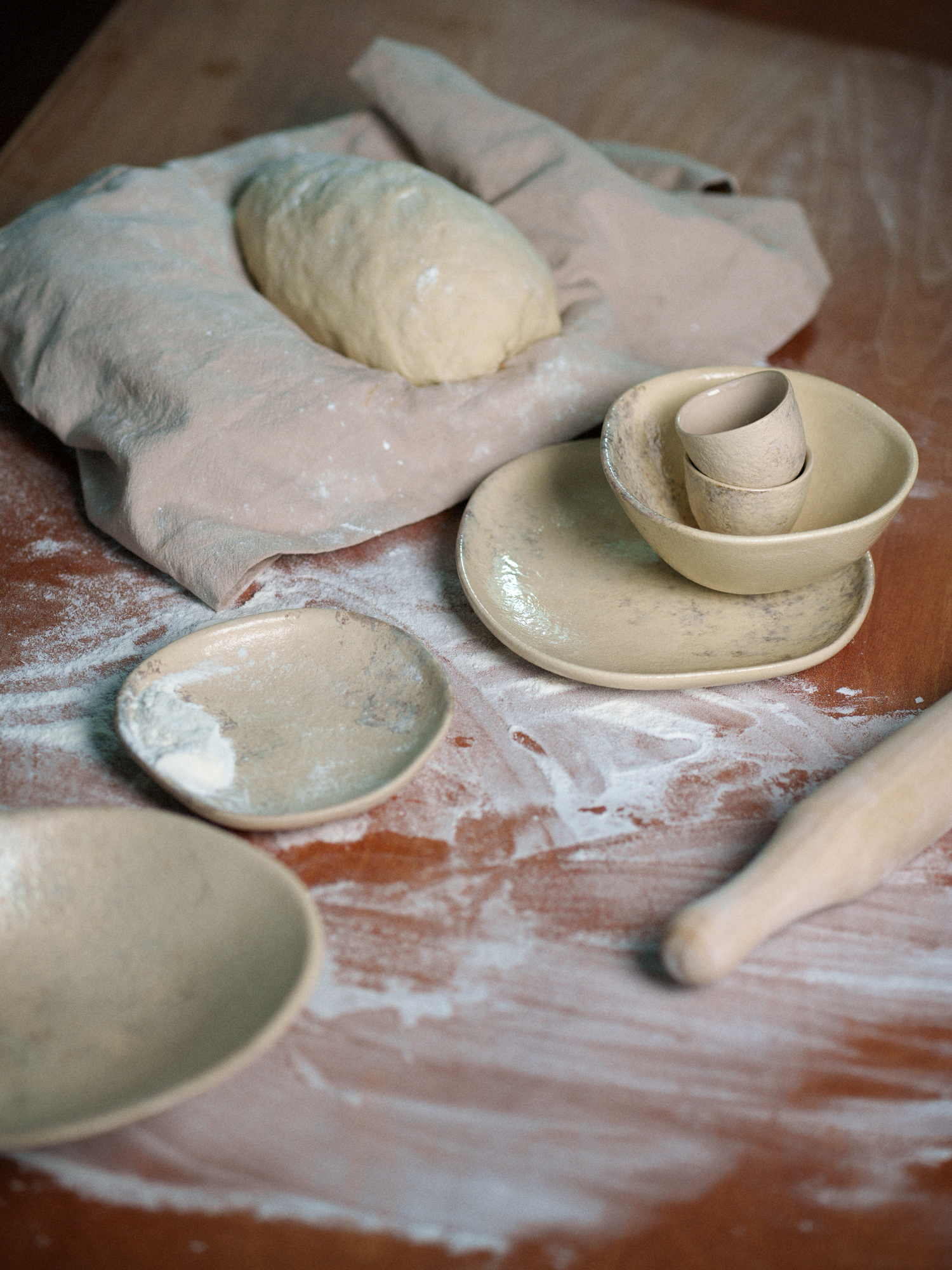
Source of inspiration
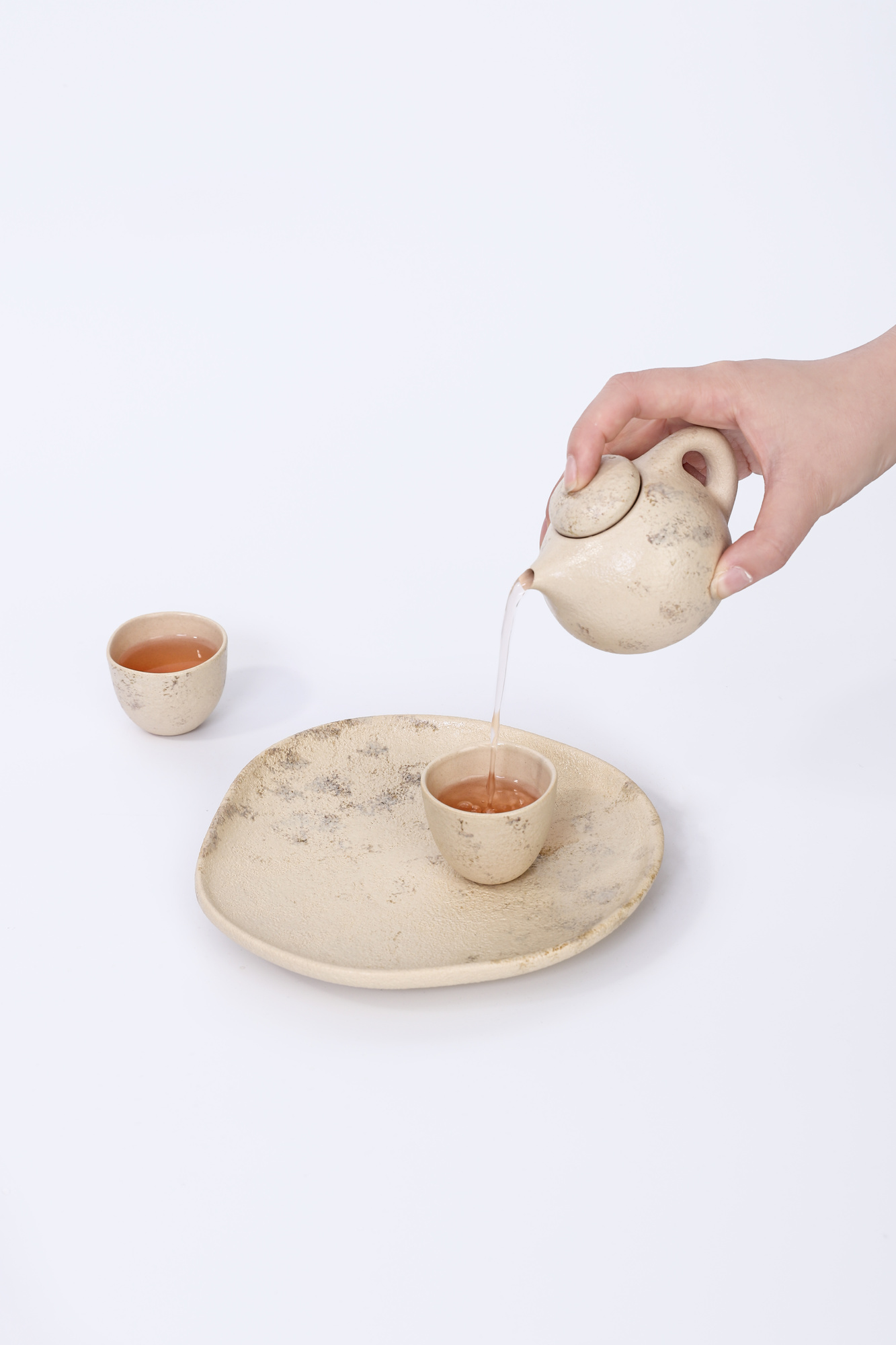
Use Presentation
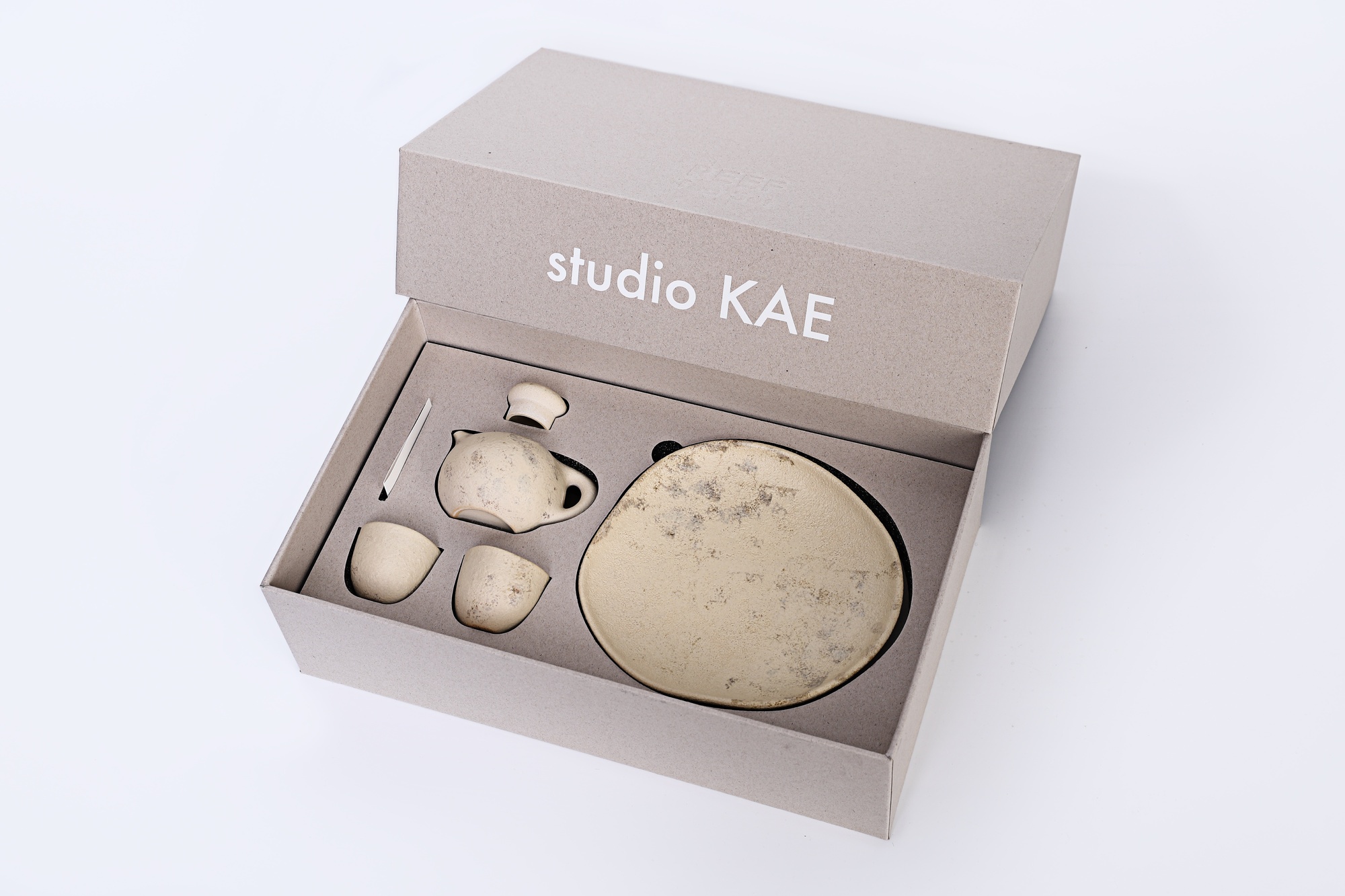
Packaging display
This series focuses on the nature of ceramic production and explores how the production process determines the final form. The work is inspired by the principle of dough fermentation during dough making. As the baker Andrew Whitley said in "Bread Matters": "Fermentation is an art of nature and time cooperation. The activity of microorganisms and the subtle changes of humidity jointly define the soul of bread." The forming process of ceramics is the same-under different humidity and temperature conditions, the clay reacts with the glaze through oxidation, shrinkage, and finally presents a unique texture and form.
The shape of the bowl captures the rhythm of air blending with flour when the dough is kneaded; the rounded curve of the tea set, especially the slightly topped lid and the slightly expanded cup mouth, echoes the visual perception of the slow expansion of the dough in the fermentation cloth. The surface is made of cosmetic soil technology, just like the effect of sprinkling a layer of dry powder on the dough, vaguely revealing uneven texture and manual traces, adding natural vitality to the ceramic.
Through a special shallow spray glaze application method, the final bright glaze subtly covers the surface of the cosmetic soil, which not only retains the natural coarse touch, but also makes it easier to clean.
Soildough series is a group of local materials and processes as the core of modern ceramic works. Its design inspiration comes from the process of dough fermentation, combines the fermentation characteristics of traditional Chinese pastries, and explores the dialogue between tradition and modernity, nature and artificial through the unique presentation of Jingdezhen handicrafts.
In the production process, the local special production method-makeup soil decoration technique is adopted. The improvement of this traditional ceramic decoration technology makes the surface present a natural and rough texture, which makes people think of the surface of pastry. The special thin-layer matte glaze on the surface meets the practical needs of easy cleaning at the same time.
The shape of each piece of tableware is inspired by the changes of dough fermentation and the process of air and dough blending. The irregular shapes of bowls and dishes show a gradual sense of expansion and rolling rhythm. Each work is a sensory experience. Through the changes of touch, visual feeling and material, it shows the expression of Chinese food custom elements in vessel art.
The tea set part especially retains the aesthetic and ritual sense of traditional Chinese tea culture. With the process of modernization, many young people have gradually moved away from the traditional tea culture, especially in the fast-paced life, the quietness and ritual of the tea ceremony have gradually faded. Through modern formal language, the design of tea sets retains the traditional elements of tea sets in simplicity and hand-made sense, helping young people to re-examine and accept the aesthetics and spirit of tea culture.
Studio KAE is a product design firm driven by process research and creativity. Zhekai and Keren, two principals who graduated from Royal College of Art, are trying to make the formal beauty of products break through the limitations of traditional materials and processes and explore deeper material semantics. Along with thinking about the relationship between industrial products and handicrafts, we try to find a balance between rational structure and emotional temperature.
